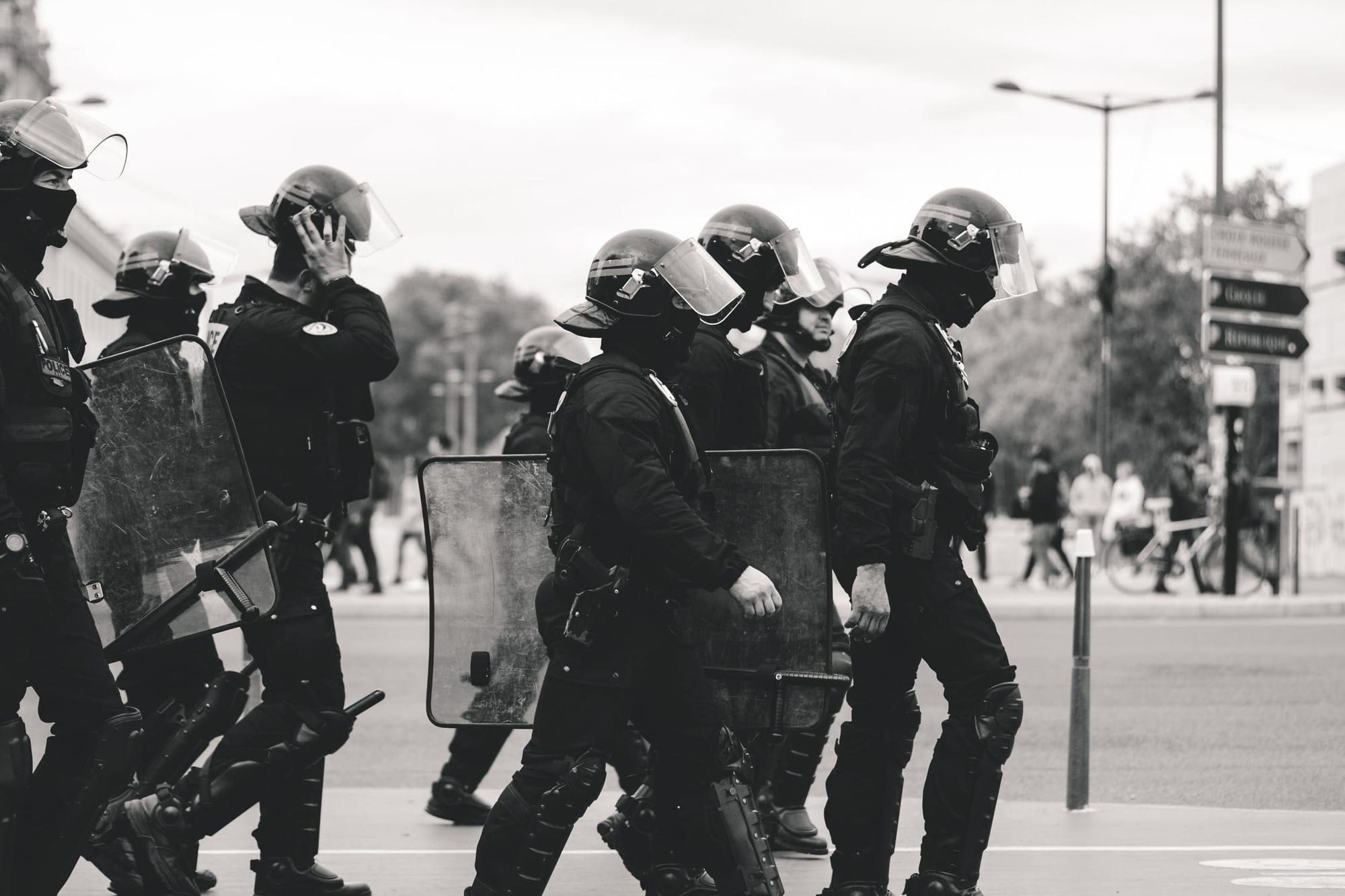Tear Gas in America: The harsh reality of military-style policing and how to protect yourself.

In today's America, the average citizen is subjected to the pressure of the wide-spanning law enforcement sector. As this reality of military-style policing has become more and more apparent the use of various chemical and conventional RCA’s (riot control agents) has been deployed against the American civilian. Over the last five years alone the city of Austin has spent over 1.1 million dollars on riot control gear and non-lethal weapons, and they are not alone in shelling out six-figure sums to boost their department's ability to combat civil unrest. What this means for the rest of us is that many Americans will have to deal with more incidents where they come into contact with these substances, and it is imperative you know how to protect yourself.
- Several different compounds are considered to be riot control agents. The most common compounds are known as chloroacetophenone (CN) and chlorobenzylidenemalononitrile (CS). Other examples include chloropicrin (PS), which is also used as a fumigant (that is, a substance that uses fumes to disinfect an area); bromobenzylcyanide (CA); dibenzoxazepine (CR); and combinations of various agents.
- In many instances, one of the best defenses against chemical-based weapons of any kind is owning and maintaining a quality gas mask. These can be purchased through the internet or at various army surplus outlets. An important thing to remember about the use of a gas mask is that when deployed the carbon filter on the mask can degrade after time so it is important to carry extra in case of a bad filter.
- For many people when they think of tear gas, they only think it can affect the eyes, but many RCA can actually affect the eyes, lungs, and sinuses as well as enter through the skin. Because of this make sure you not only protect your face but also your skin.
- Many times, these devices are deployed using grenade launchers or paintball guns which have no way of managing the velocity at which they fire so many times when struck with these RCA the risk for wounds just by kinetic force is also a factor.
- If you are exposed to tear gas, get away from the affected area and face the wind. This will help to blow off any access chemical powder as well as allow you to breathe more comfortably. Furthermore, it is important that you wash your eyes and body with cold water as warm water will open your pores and allow the chemical to go deeper in your skin. Lastly do not take a bath as you will just be soaking in chemicals.
- The clean-up of tear gas is not a simple task and therefore should be handled by a professional. The effects of long-term exposure to tear gas can lead to permanent heart, respiratory, and liver problems. Seek medical attention if exposed.
These key facts and the advice of medical personnel can and will help to protect you in the event of you or a loved one being exposed to a chemical RCA. Please be safe and stay free.
CHWaltman, Curtis. “Police Departments across the Country Are Spending Millions on Riot Gear.” MuckRock, 15 May 2017, www.muckrock.com/news/archives/2017/may/15/police-riot-gear-budget/.Aftermath. “4 Tips to Neutralize Tear Gas.” Aftermath Services, www.aftermath.com/content/tear-gas-neutralizer/.Livingston, Mercey. “Here's What to Do If You Get Exposed to Tear Gas.” CNET, CNET, 4 June 2020, www.cnet.com/health/tear-gas-what-to-do-if-you-or-someone-you-know-is-exposed/.